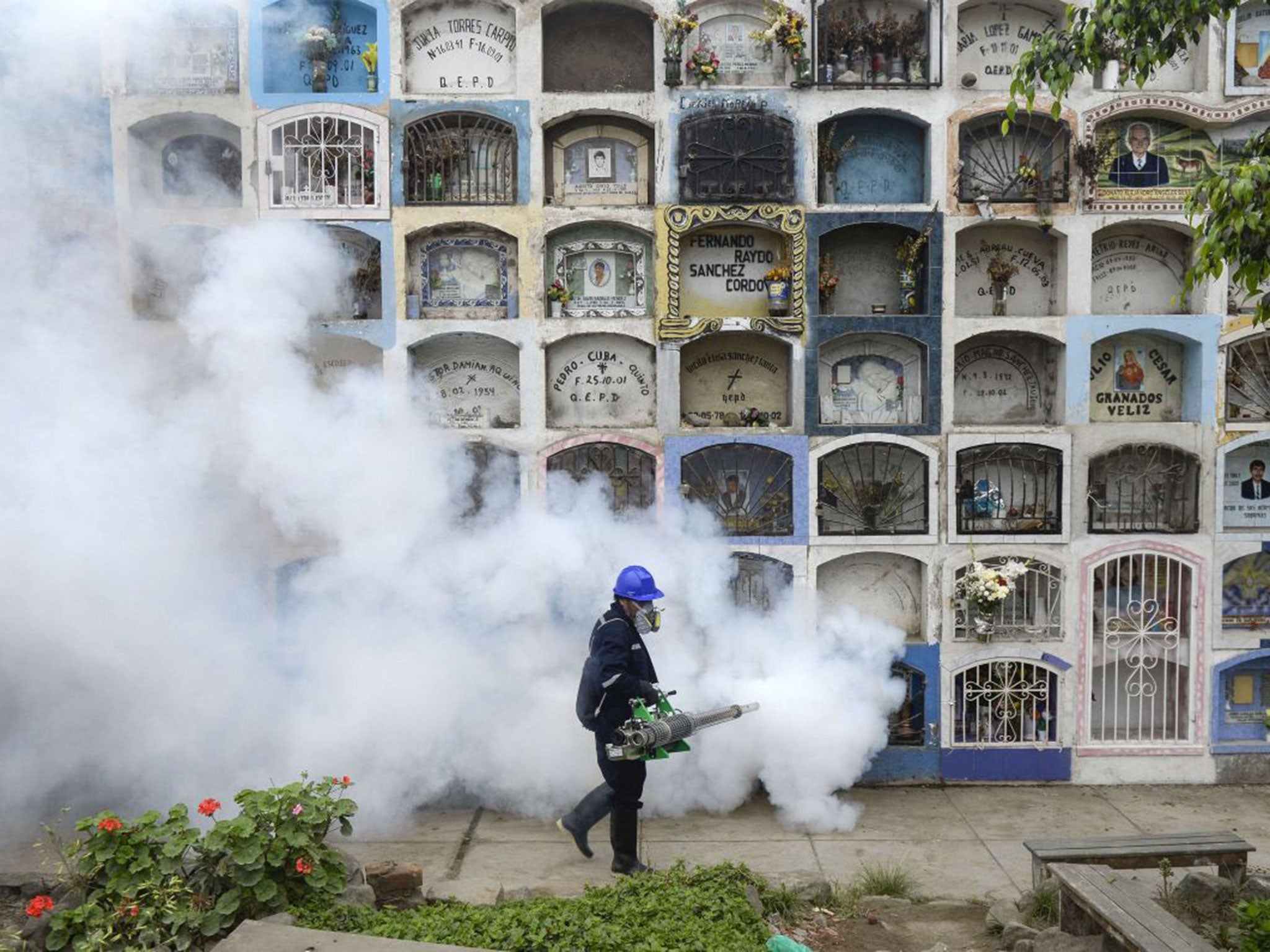Zika virus: Brazilian expert reveals frustration at nation's failure to control 'explosive' outbreak
Dr Adriana Melo first warned of the connection between Zika and microcephaly in November 2015

With four million cases now predicted across the Americas, one of the first Brazilian medics to make the link between the Zika virus and birth defects has spoken of her frustration at Brazil’s failure to control the outbreak.
Dr Adriana Melo, who works as a consultant obstetrician at the Elpidio de Almeida Health Institute maternity hospital in Campina Grande, Paraiba state, first warned of the connection between Zika and microcephaly in November 2015.
“I started to get concerned at the end of last year when I noticed an increase in the incidence of malformations in foetal nervous systems in ultrasound examinations during pregnancy,” she told The Independent. “In all my 18 years of practising as a doctor, I had never seen such a virulent level of destruction in the brains of foetuses.”
All Dr Melo’s patients had suffered a red rash and itching during the first weeks of pregnancy, she said. “A foetus I was monitoring that had been developing normally, began to show an enlargement in of the posterior fossa and reduced cerebellar size and the cerebellar vermis. These structures are located on the back of the brain,” she added.
Throughout the summer, claims of the virus emerging in Paraiba state were dismissed as a mild form dengue fever. Dr Melo said she sent, in November last year, samples of amniotic fluid from two foetuses from her base in Paraiba, to the Flavivirus Oswaldo Cruz Laboratory Institute in Rio. Two women were also sent to a São Paulo research centre for tests.
Two weeks after Dr Melo sent her samples, the Brazilian Ministry of Health declared a public emergency. “The fact that there is nothing in scientific literature talking about the association between microcephaly and Zika virus hindered the acceptance of the relationship by the scientific community and health officials,” Dr Melo said.
Zika virus in numbers
2 weeks to declare emergency after samples received
4,000,0000 Cases predicted across the Americas
20 Number of countries where Zika detected
1947 Year virus discovered in Uganda
4,180 Suspected Brazil cases of microcephaly since October
Declaring that the Zika virus is “spreading explosively”, the World Health Organisation said it will hold an emergency meeting of independent experts on Monday to decide if the outbreak should be declared an international health emergency.
At a special meeting in Geneva, the WHO’s director-general, Dr Margaret Chan, said the virus was becoming much more of a threat. The Zika virus was first detected in 1947 and for decades only caused mild disease, but Dr Chan noted that “the situation today is dramatically different”. It is now found in more than 20 countries, including Britain, but mostly in Central and South America. It is spread by the Aedes agypti mosquito, which also spreads dengue and yellow fever.
Battling the zika virus - in pictures
Show all 19Declaring a global emergency usually brings more money and action to address an outbreak. The last such emergency was announced for the devastating 2014 Ebola outbreak in West Africa, which killed more than 11,000 people. The WHO was criticised for its slow response to Ebola; almost 1,000 people had died before WHO declared it to be an international emergency.
The US says it has potential candidates for a vaccine and may begin clinical trials in people by the end of this year. No vaccine will be widely available for at least two years, officials said as Argentina confirmed its first case.
Jimmy Whitworth, professor of international public health at the London School of Hygiene and Tropical Medicine, told The Independent that the Olympics this summer in Brazil could be under threat. “They’re going to have a meeting on Monday about whether this is an emergency of international concern, in which case I think all bets are off. We simply don’t know. We’d be going into an emergency contingency mode,” he said. “I think the worry would be, people would come from all round the world to Rio, potentially get infected then all go home again and disseminate it all round the globe.”
Speaking from Paraiba, Dr Melo admits to being “pessimistic”. “Our climate favours the proliferation of mosquitoes, we have sanitation problems and no vaccine,” she warned. “Our only hope is that women develop immunity soon and fight it that way.”
Subscribe to Independent Premium to bookmark this article
Want to bookmark your favourite articles and stories to read or reference later? Start your Independent Premium subscription today.

Join our commenting forum
Join thought-provoking conversations, follow other Independent readers and see their replies